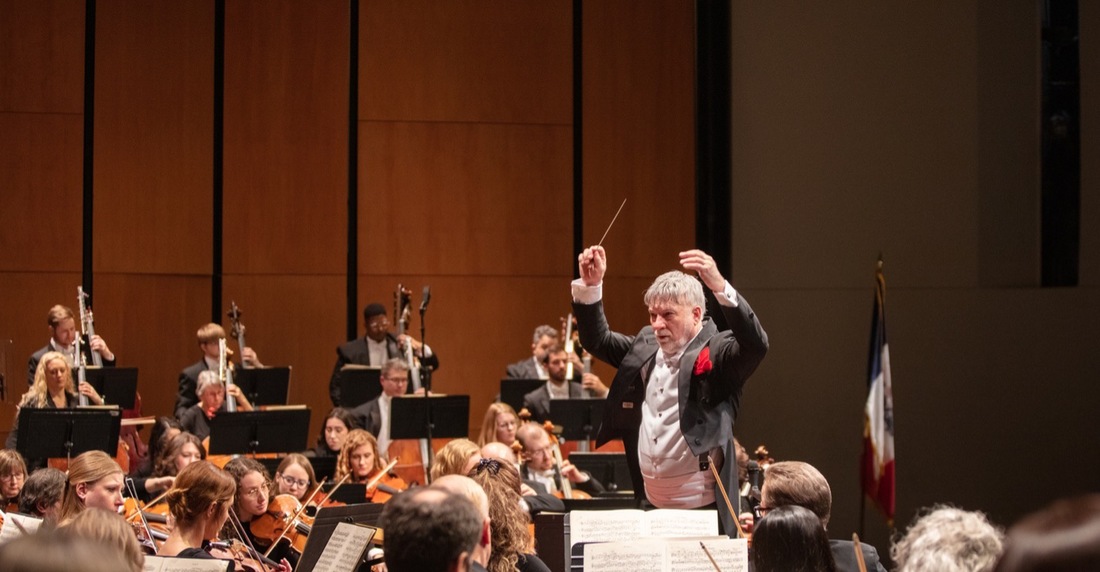
Attending a classical music concert is an experience like no other. Thousands of people sit together silently, no phones in sight, completely captivated by entertainment created without the aid of technology. This unique experience makes live performances so special to classical music lovers -- and so intimidating to less experienced concertgoers.
We don’t want that to be the case. Classical music concerts are wonderful, and we want you to feel comfortable attending, whether its your first time walking into the concert hall or your hundredth. We have a few guidelines to ensure that you and other concert attendees have an enjoyable experience.
Turn off your phone.
Before the concert begins, turn off your phone. If you cannot completely power off your phone, at least make sure that the ringer is silenced (silent...not just on vibrate!) and will not disrupt the music. Airplane Mode is a great option. People love listening to professional performances because of the subtle details. Hearing a phone vibrate or seeing a screen light up – even if it is only for a second – could distract those around you and detract from the musical experience. Plus, having your phone completely off and put away might free up some mental space that you can use to enjoy the music.
Do not talk or make noises.
While the musicians are playing, do not talk or make noises. Concert halls are large, resonant spaces. They are built to amplify even the most pianissimo of sounds. (Pianissimo is music terminology for very quiet!) This is great news if you are sitting in the back row and a violinist is playing a quiet solo. However, this also means that any small noises you make can be heard by many people around you. Do not talk during the performance, even if it is just a whisper. Do your best to prevent or suppress other noises like coughs or sneezes (although we understand that these things are not always preventable). If you start coughing and cannot stop, it may be best to step out of the auditorium so that you can catch your breath without distracting others.
Clap at appropriate times
While classical musicians love it when their hard work is rewarded by applause, there are conventions that govern when it is appropriate to clap. It is customary to wait until a piece is completely over. Many classical music pieces contain multiple movements, or shorter sections. Multiple movement pieces will be listed as such in the program (example below). Usually, the performers will take a small pause between movements, but sometimes, one movement will flow into the next with no break. Even though the movements in a piece have separate beginnings and endings, there should be a sense of continuity between them to unite the whole piece. Some think that applause disrupts this continuity, which is why it is customary to wait until the entire piece is over. At the end of a piece, the conductor usually will turn to face the audience as an invitation for applause. If in doubt, wait for someone else to clap!
Sample
Allegro molto moderato
Adagio —
Allegro moderato molto e marcato —
Poco più tranquillo — Tempo I
*Clap!*
Be respectful and kind to the people around you.
Let’s create a culture of kindness throughout the classical music community! Be polite and courteous to the people around you, especially as you navigate a tightly packed auditorium. Be kind and friendly to the people you are sitting next to, even if you don't know them. And if someone unintentially distracts you from the performance, show a little bit of grace. Let's welcome a new audience into the wonderful world of classical music.
Enjoy the music!
The most important part of going to a classical music performance is to enjoy the music! Pay attention to the performers and find interest in the music. If it helps you to stay engaged, ask yourself questions about the music, such as “What was my favorite part of the last piece?” or “What was my favorite instrument to listen to during this concert?” Take a few minutes to read the program notes, tune into Classical Conversations or attend our Concert Prelude Talks. The more you know, the more enjoyable the experience will be!


